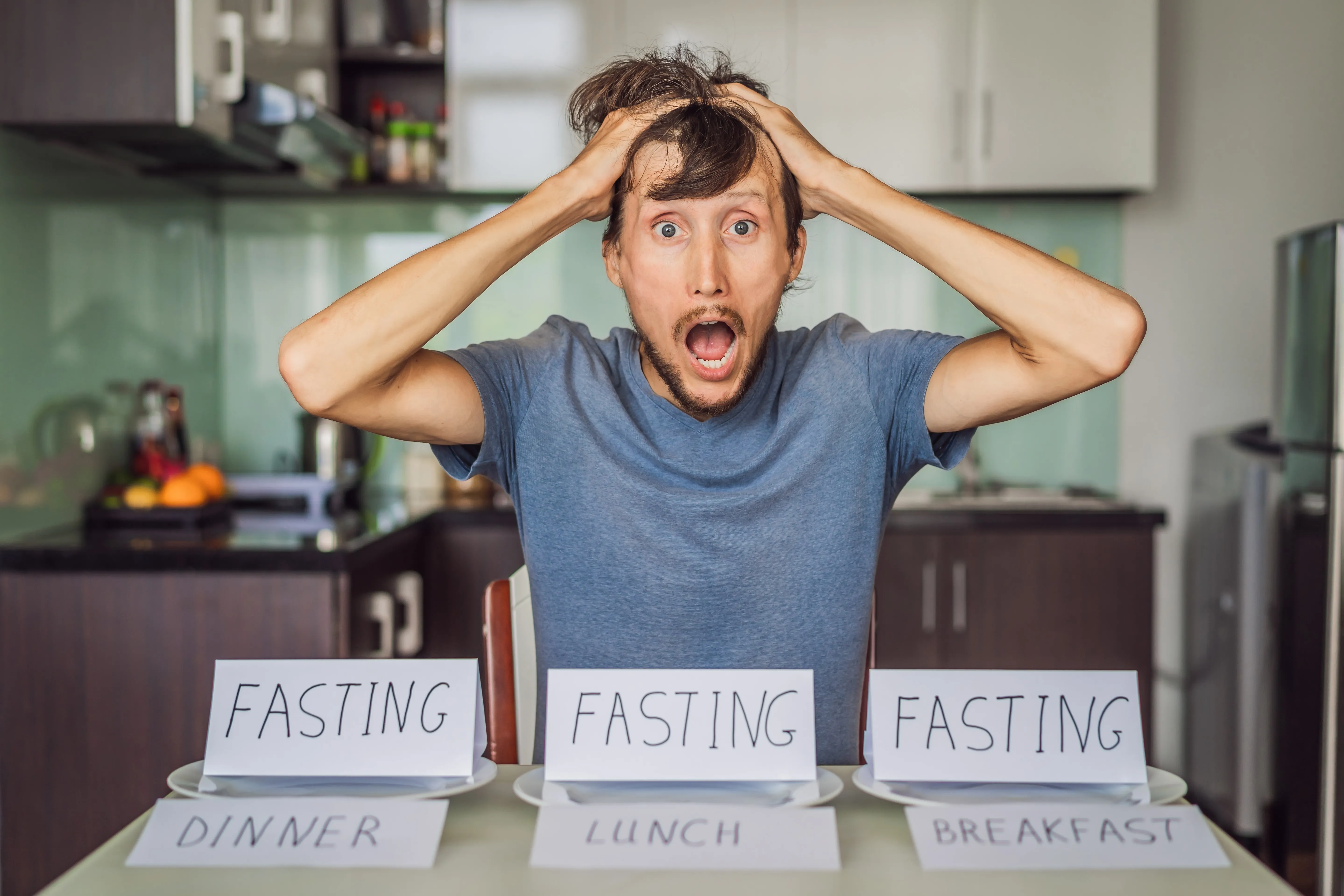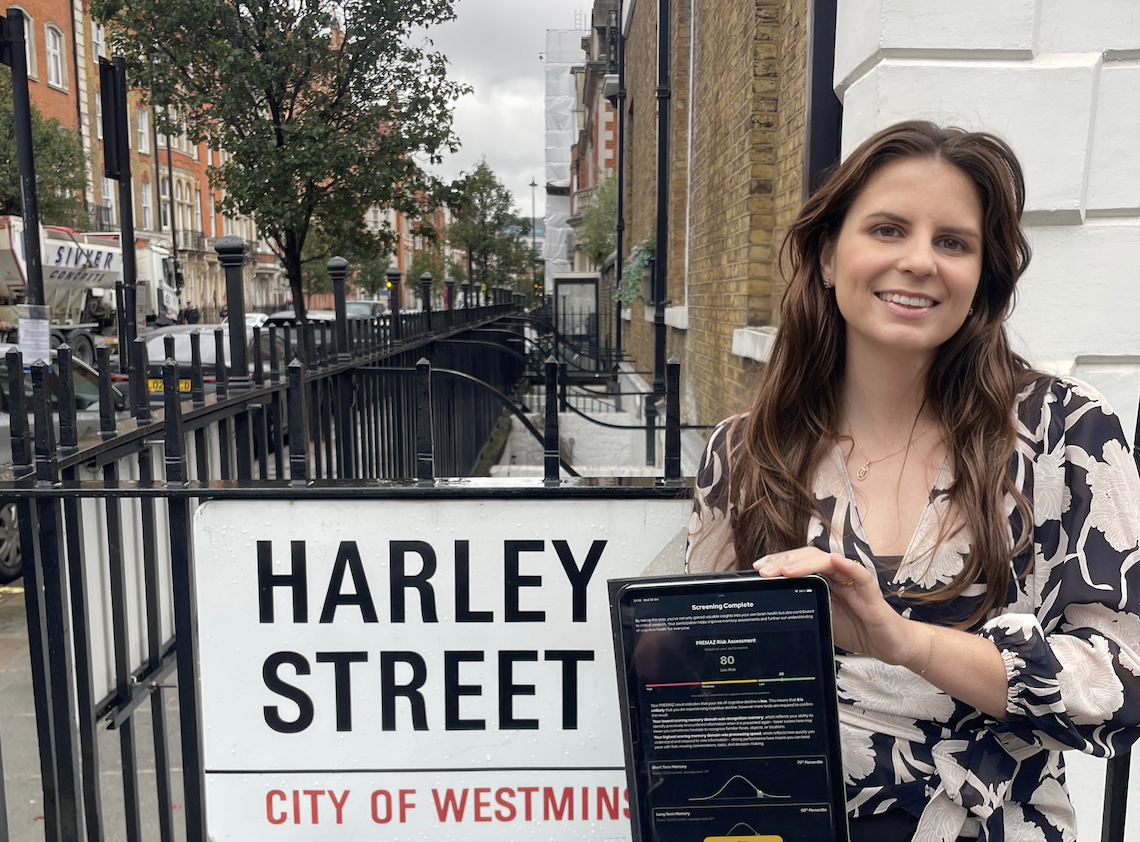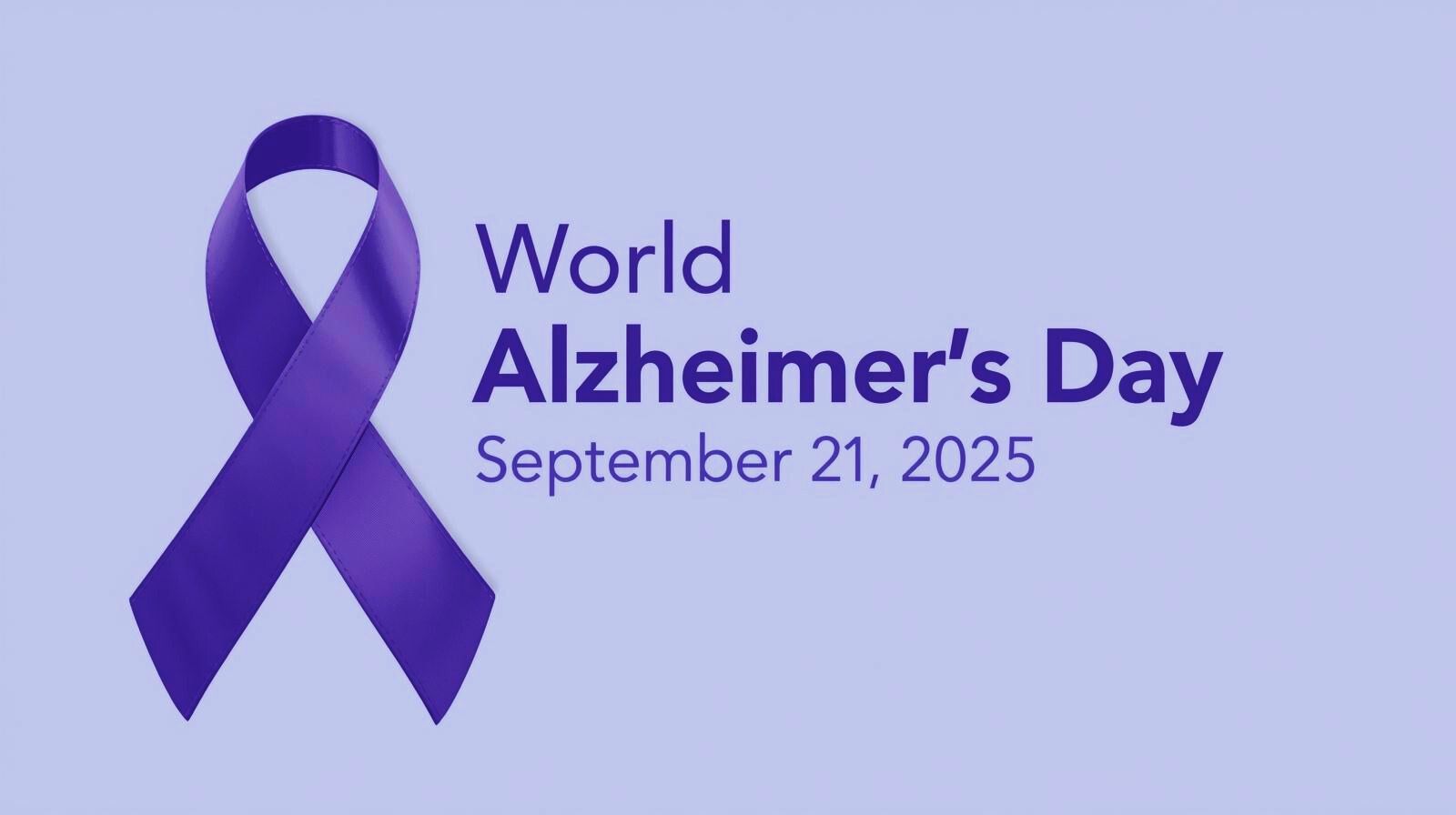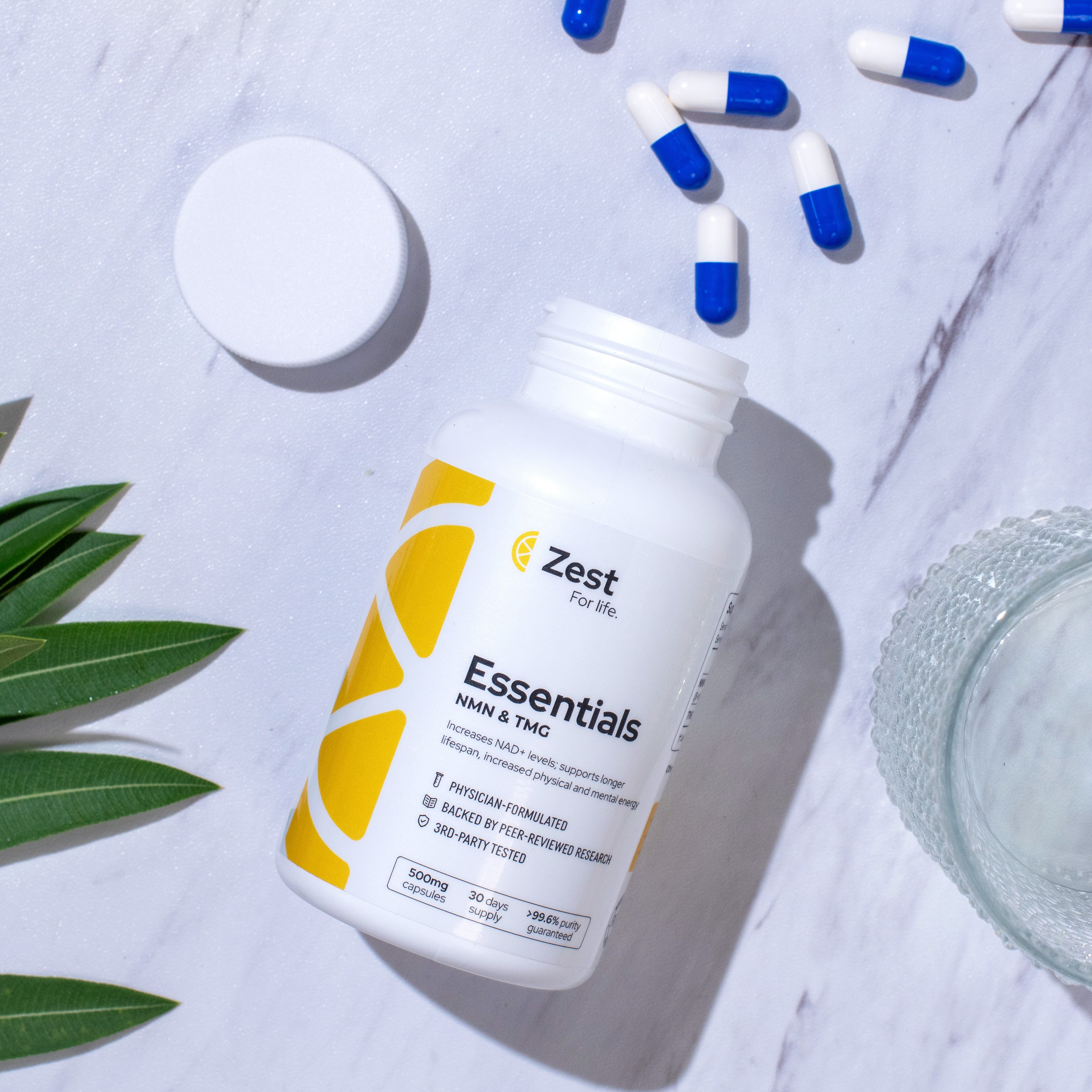Zest's Fasting Guide

Fasting Guide
For the first of Zest’s 2023 Longevity Challenges, we’re challenging ourselves and our community to undertake an extended fast. We’ve put together this science-backed guide so that you know how to prepare, what to expect, and what you can do during the fast to make the experience as easy and as beneficial as possible.
We want this challenge (and all our other challenges!) to be accessible to everyone, whether you’re an experienced longevity enthusiast or are just starting out on your journey towards a healthier, longer life. For this reason, we’ve set three levels at which you can choose to take part:
- Beginner: 24-hour fast
- Intermediate: 48-hour fast
- Advanced: 72-hour fast
If you’ve never undertaken an extended fast before, then 24 hours is a great aim that will bring amazing benefits. If you have fasted before then you might like to try 48 or 72 hours, which will have even greater effects. You can read all about the science behind fasting’s benefits in our other recent blog post: January 2023 Longevity Challenge - Fasting.
You don’t necessarily need to decide on the length of your fast beforehand - you can just start and see how far you can go. Also, if you’ve set yourself a target but start to feel unwell at any point, don’t force yourself to carry on until you reach your aim.
Types of fast
Fasting simply involves ingesting no (or minimal) calories for an extended period of time, generally at least 12 hours. There are different types of fasting with different rules and you’re free to pick whichever one you choose. Many people choose to abstain from everything except water, but we recommend a calorie-restricted fast.
This means you can still drink water, black tea, and black coffee, and take in electrolytes in liquid form, which we believe is the most accessible and effective method of fasting. Although tea and coffee do contain around 2-3 calories per cup, this is not sufficient to cause acute metabolic changes that will affect your fast [1, 2] and drinking them can provide stimulation and suppress your appetite, making the fast much more achievable [3].
Who should not fast
You should not fast if you:
- Are younger than 18 or older than 75 years of age
- Are pregnant or breastfeeding
- Have diabetes (unless you have consulted with a medical professional)
- Have any history of eating disorders
- Have a BMI <18.5
Before fasting
- Eat a light and healthy meal: Refrain from eating a very large meal and any processed foods right before you begin your fast. While it may slightly delay the feelings of hunger, they are likely to be far worse when they do arrive. Drinking alcohol or sugary beverages will also make the first part of your fast more difficult.
- Minimize carbohydrates: The more carbohydrates you eat before your fast, the longer it will take for your body to enter into ketosis. Ketosis burns fat, provides energy, enhances mental focus, suppresses appetite, and has wide-ranging benefits for health and longevity, so you should aim to spend as much time in it as possible!
- Practice fasting: You can prepare yourself for the fasting challenge by attempting some shorter fasts in the period beforehand. Following an intermittent fasting regime, where you only eat during a short window during the day (usually between 4-8 hours), in the days or weeks before your extended fast is a great way to do this.
- Clear your schedule: During a fast you’re likely to experience moments of mental clarity and focus, but you may also have to endure bouts of fatigue and possibly nausea. Given that it’s hard to predict when you’ll experience these feelings, it’s best to make sure you have nothing too important or strenuous lined up for the period during which you are planning to fast. If you are fasting for longer than 24 hours, you are unlikely to have much energy on the 2nd and 3rd days and so may want to start on a Thursday to avoid working on the days when you will be most fatigued.
During the fast
- Stay hydrated: Your body needs sufficient water in order for the beneficial processes induced by fasting to function. Drinking 1.8 liters per day is generally recommended [*].
- Drink caffeine, but not too much: Black tea or coffee can suppress appetite and help during moments of fatigue. If you do choose to drink coffee or tea, ensure you do not exceed the recommended daily allowance of 200mg caffeine per day (roughly 3 cups of coffee or 5 cups of breakfast tea).
- Stay busy: Keeping your mind and body occupied during a fast will make the experience much easier. We recommend light exercise (discussed in more detail below), yoga, reading,
- Exercise lightly: Exercising can be a great way to stay active and energized, but be careful not to over-exert yourself, especially if you’re fasting for longer than 24 hours. It’s best to do no more than an hour of light-moderate exercise (such as jogging, cycling, weight training) per day and to avoid intense exercise altogether if you start to feel dizzy or light-headed stop immediately.
- Remind yourself of the benefits! Keeping in mind the incredible positive impact that fasting has on your health and longevity (which we’ve outlined in a separate blog post here) can be very effective for helping you stay motivated. Thinking about all the extra healthy, happy years you’re giving yourself will make it much easier to resist a trip to the fridge!
- Avoid long drives and other strenuous tasks: As we mentioned, fatigue can set in at any point, so going for long drives or partaking in any other activity that could be dangerous if you lose focus is strongly advised against.
- Take electrolytes: Electrolytes are minerals such as sodium, potassium, chloride, and magnesium, that are integral for our body to function correctly. Your body depletes its reserves of electrolytes after around 24 hours, so when fasting you should replenish your levels with dissolvable electrolyte tablets, pink salt, or any other (zero-calorie) form you wish. This is essential for 48-hour and 72-hour fasts.
- Avoid extreme temperatures: If you usually enjoy cold immersion or saunas, it’s best to avoid them while fasting as your body may not react well to the sudden changes in blood pressure, heart rate, and other aspects of your physiology may have serious adverse effects. Sweating will also drain your electrolytes even faster.
- Continue to take your supplements: If you are regularly taking any supplements then you can continue to take them throughout your fast, providing they do not contain any calories.
- If you feel unwell, stop! Common side effects of fasting include nausea, fatigue, weakness, headaches, muscle aches, and dizziness, so you shouldn’t be alarmed if you feel any of these. However, if any of these side effects start to feel severe, or you feel unwell or in any kind of pain, then you should stop your fast immediately and eat or drink something (a salty broth is usually the best thing), then seek medical attention if you feel it is necessary.
After the fast
- Ease your way back into eating: After 24 hours or longer without food, your body will have undergone significant metabolic and physiological changes and it’s important that you are careful in how you reintroduce food back into your body. People often find soups or other liquid forms of food are the most pleasant way to readjust to eating, but if you prefer to go with solid foods then be sure to chew thoroughly and take your time.
- Go slow on the carbs: Be especially wary of eating too many carbohydrates, such as bread, pasta, potatoes, or fruit, in the immediate aftermath of a fast, as your body may react badly after being without carbs for so long (this is sometimes known as the ‘carb hangover’).
- Incorporate regular fasts: At the end of your fast you will hopefully feel cleansed, rejuvenated, reinvigorated, and keen for more! While extended fasts of 24 hours or more are not recommended more than once or twice a month, many people integrate regular fasting into their life through intermittent fasting techniques, so you could explore whether this might be something you’d like to take up.
If you follow this advice you should be all set for a fulfilling, happy, and healthy fast. Good luck and make sure to let us know how you get on!






